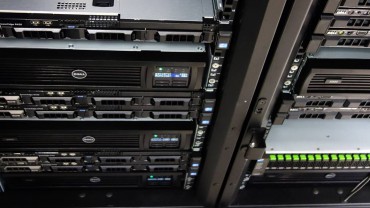Computational Biology Lab
Staff
Scientific responsible: Dr. Frederic Bartumeus (fbartu@ceab.csic.es)
Technical responsible: Xavier Roijals (xroijals@ceab.csic.es)
Introduction to the service
The Computational Biology Laboratory (CBL) was created as a response to the growing demand for computing capacity. Computationa ecology is linked to frontier R&D developed at the CEAB across different ecological aspects of marine and continental ecosystems. The demand for high-performance computing evolved naturally at CEAB, going from resources generated by individual research projects to the present moment that requires a High Performance Computing Cluster (CAR) of common and shared use. The CBL and the CAR were co-financed by the infrastructure resources of the CEAB and by the Ministerio d’Economía y Competitividad (CSIC13-4E-1999).
Equipment and characteristics
The cluster (CAR) total capacity is currently 13 compute nodes, making a total of 284 processors, 2671 GB of RAM and43 TB of hard disk space. We also have four servers that add a total of 72 “cores” and 312GB of RAM for uses beyond computing (virtualization of databases, interactive web maps, source code via gitlab, etc.).
Scientific aims
- BIOINFORMATICS AND MOLECULAR ECOLOGY
-
To strengthen the CEAB bioinformatics and molecular ecology by structuring, periodically updating and centralising all bioinformatics software in use at the centre as well as increasing calculation capacity.
- SPATIAL ECOLOGY
-
To strengthen spatial ecology by developing an open source map server as well as by structuring and centralising all GIS software (Geographical Information Systems) with a CSIC licence. To increase calculation capacity on geo-referenced databases as well as on the processing and analyse of satellite images.
- THEORETICAL AND COMPUTATIONAL ECOLOGY
-
To strengthen theoretical and computational ecology by developing and implementing statistical, mathematical and simulation techniques applied to ecological systems. To increase calculation capacity as well as to centralise and update R, Matlab, Scilab, Octave or Python software in order to perform theoretical studies and statistical analyses demanding a high capacity of computational resources (e.g. Bootstrapping).
- DATA MINING AND KDD (KNOWLEDGE DISCOVERY IN DATABASES)
-
To facilitate and promote the use of all kinds of techniques concerning automatic learning and artificial intelligence such as the discovery of knowledge in databases (KDD), data mining and expert systems by structuring and centralising software for this purpose as well as by training researchers in these disciplines which are already essential and omnipresent in advanced ecological studies.
- DATA AND IMAGE BANKS
-
Over the years, the CEAB has built up a large and valuable dataset from research projects. These data include historical records (decades) of environmental monitoring which are a key for the analysis of global and climate change as well as images concerning taxonomical features relevant to taxonomic and biodiversity studies. Our goal is to produce a data and image repository/bank available to the researchers at the centre and open to the international community, under some conditions, to help establishing collaborations and new synergies.
- TRAINING
-
In order to establish the bases of a more quantitative and conceptually solid ecology, it is necessary that the new generations of ecologists learn programming languages and understand the usefulness and functioning of a CAR cluster. Indeed, training in disciplines such as algorithms, data mining, database management, applications, GIS, among others, is necessary. Such training confers to scientists the handling of more powerful scientific tools in order to solve complex ecological problems for the understanding of the weave of biodiversity and its function.
In that sense, the Computational Biology Lab is not limited to CAR cluster but it intends to be a “living” laboratory involving support technicians and researchers of the centre in order to be able to offer training courses, individual or group advice, interdisciplinary workshops, etc. The aim of all of this is to set operational bridges between theory and empiricism and to produce a more quantitative and interdisciplinary ecology for all interested (internal and external) users.
Information to users
The Computational Biology Lab and, particularly, its basic infrastructure (CAR cluster) furnish a cross-service to all research groups at the CEAB and external users.



